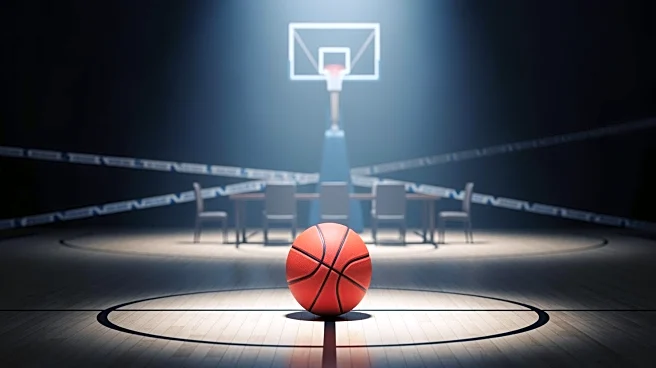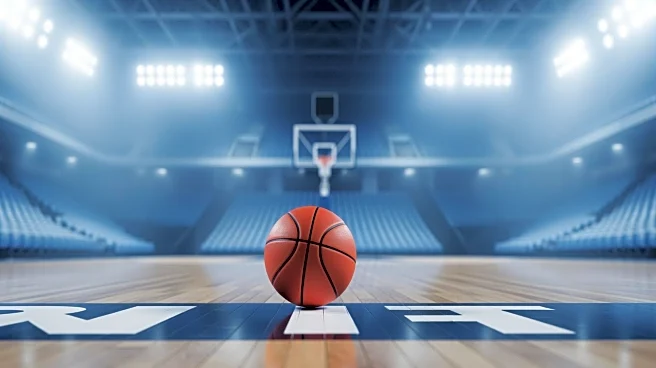What's Happening?
The University of North Carolina (UNC) has cleared Luka Bogavac, an international guard from Montenegro, to play for the Tar Heels basketball team. Bogavac's eligibility was confirmed just before UNC's
season-opening game against Central Arkansas. The process involved obtaining NCAA clearance and resolving internal institutional checkpoints related to Bogavac's transcript and playing status. UNC relied on external agencies to process international transcripts, a lengthy ordeal due to Bogavac's unique background as a 22-year-old former professional player. Bogavac committed to UNC in May, cleared admissions in July, and received a student visa in August.
Why It's Important?
Bogavac's clearance is crucial for UNC's basketball program, which has undergone significant roster changes. His addition strengthens the team's lineup, offering experience and international talent. The case highlights the complexities of managing international player eligibility in college sports, emphasizing the need for coordination between universities, external agencies, and the NCAA. It reflects broader challenges in integrating foreign athletes into U.S. college sports, impacting recruitment strategies and program development.
What's Next?
With Bogavac cleared to play, UNC can focus on integrating him into the team and maximizing his contributions on the court. The case may lead other universities to review their processes for handling international player eligibility, potentially influencing NCAA policies. Stakeholders in college sports may advocate for streamlined procedures to facilitate the participation of international athletes, enhancing the diversity and competitiveness of U.S. college sports.
Beyond the Headlines
Bogavac's case underscores the intersection of sports, education, and immigration policy, raising questions about the efficiency and fairness of current systems. It highlights the role of international athletes in enriching U.S. college sports and the need for policies that support cultural exchange and diversity. The situation may influence future discussions on balancing regulatory requirements with the benefits of international participation in college athletics.









